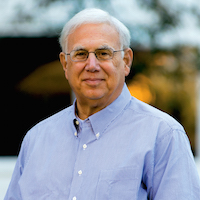Leadership is a fascinating phenomenon: it seems rare even when there is a plentitude of it. After a nearly 50-year career in higher education, decades on corporate and nonprofit boards, and years of teaching an undergraduate course on leadership, I have concluded that we need more and better leaders and leadership studies should be an integral part of the undergraduate curriculum.
It is not that there is a shortage of leaders—people in leadership positions are all around us and even those not in formal leadership roles can easily emerge as leaders in the era of social media. However, the kind of leadership we need in our organizations, local communities, the government, our country, and in the world seems to be in short supply. We commonly complain about a general dearth of leadership, point with outrage at those deemed to be bad leaders, and are horrified by examples of destructive leadership.
At the same time, we worship leaders whose success and character inspire us. We know well that good leadership has great potential to make things right; give our work and lives meaning; and foster stability, unity, innovation, and equity. If our hopes and dreams rest on the promise of leadership, shouldn’t leadership studies in college be an explicit and widely implemented strategic priority?
For decades, colleges have been eagerly marketing themselves as the places that make the leaders our world needs—for good reason. Not only is the college experience naturally saturated with opportunities for deepening one’s passions, learning and growing, and stepping into leadership roles inside and outside the classroom, but it also commonly involves access to at least a few elective courses on leadership as well as co-curricular programs and centers dedicated to leadership development. A growing number of colleges have degree-granting programs that allow students to major or minor in leadership.
Still, I am familiar with only two cases in which the study and practice of leadership have been integrated into the collegiate core curriculum.
Centering leadership: The nation’s service academies and Sweet Briar College
West Point and the Naval, Air Force, Coast Guard, and Merchant Marine academies are well known for having leadership at their center, but a small liberal arts college for women that last made headlines when its alumnae saved from certain death in the face of seemingly hopeless financial problems in 2015 may be a rather unlikely pioneer. As I learned from leading Tulane University in the aftermath of Hurricane Katrina though, an institutional near-death experience breeds bold innovation. It is clearly not in spite of its major existential crisis, but rather because of it, that Sweet Briar has emerged as a remarkably forward-thinking and daring player in the field of leadership education and development. Two years after its shocking closure announcement and subsequent rescue, Sweet Briar unveiled a core curriculum focused on examining and defining women’s leadership in the twenty-first century with an emphasis on experiential learning and core courses such as Decisions in a Data-Driven World and Sustainable Systems.
To have more great leaders, we need to empower the next generation to grapple with the theories and realities of leadership. All of our students should develop a nuanced understanding of what leadership is and isn’t. They need to understand the complex process that is leadership and the fact that anyone—not just a select few—can lead. We need them to know the difference between transactional and transformational leadership as well as how to identify and address technical versus adaptive challenges. They should comprehend why ethics matter in the context of leadership (a helpful definition by Joanne B. Ciulla describes leadership as a “complex moral relationship between people, based on trust, obligation, commitment, emotion, and a shared vision of the good”). And they should value the powerful and important role followers play—for the world also needs more exemplary followers, and there is no leadership without followership.
Leadership education can’t be optional or take place on the periphery of the college experience; it should be an integral part of the undergraduate curriculum. I have experience with embedding a field that was previously considered “nice but not essential” into the core curriculum, and I know it can be done. After Hurricane Katrina, faced with destruction and the herculean effort of rebuilding our university and city, public service became a lifeline. My leadership team and I realized that doing good and engaging with the community should no longer be something students could opt in to if they felt like it; it should be expected. We became the first major private research university in the country to require public service for graduation. I believe a parallel argument can be made for incorporating leadership into the core curriculum at colleges across the country.
Our world is more complex, fragile, and unpredictable than ever before. Without the right leadership (and plenty of it), our institutions, democracy, and economy don’t stand a chance. We would be prudent to take a closer look at what longstanding experts like the U.S. Air Force Academy and trailblazers like Sweet Briar College are doing to put leadership front and center in their students’ education and growth. Much is at stake, and anyone can emerge as a leader to capture people’s attention and imagination—but it is paramount that the next generation of leaders can tell the difference between good and bad leadership. They must have the capability to lead (and follow) with competence and awareness.
If you have any questions or comments about this blog post, please contact us.


